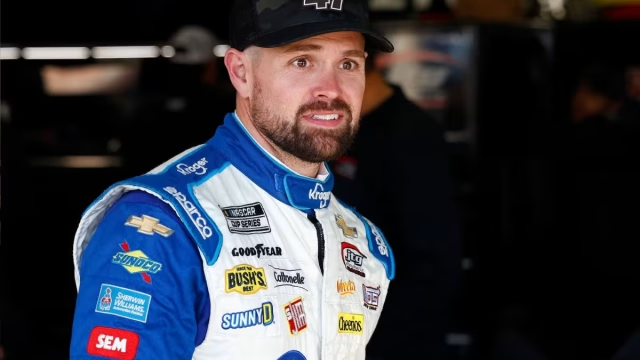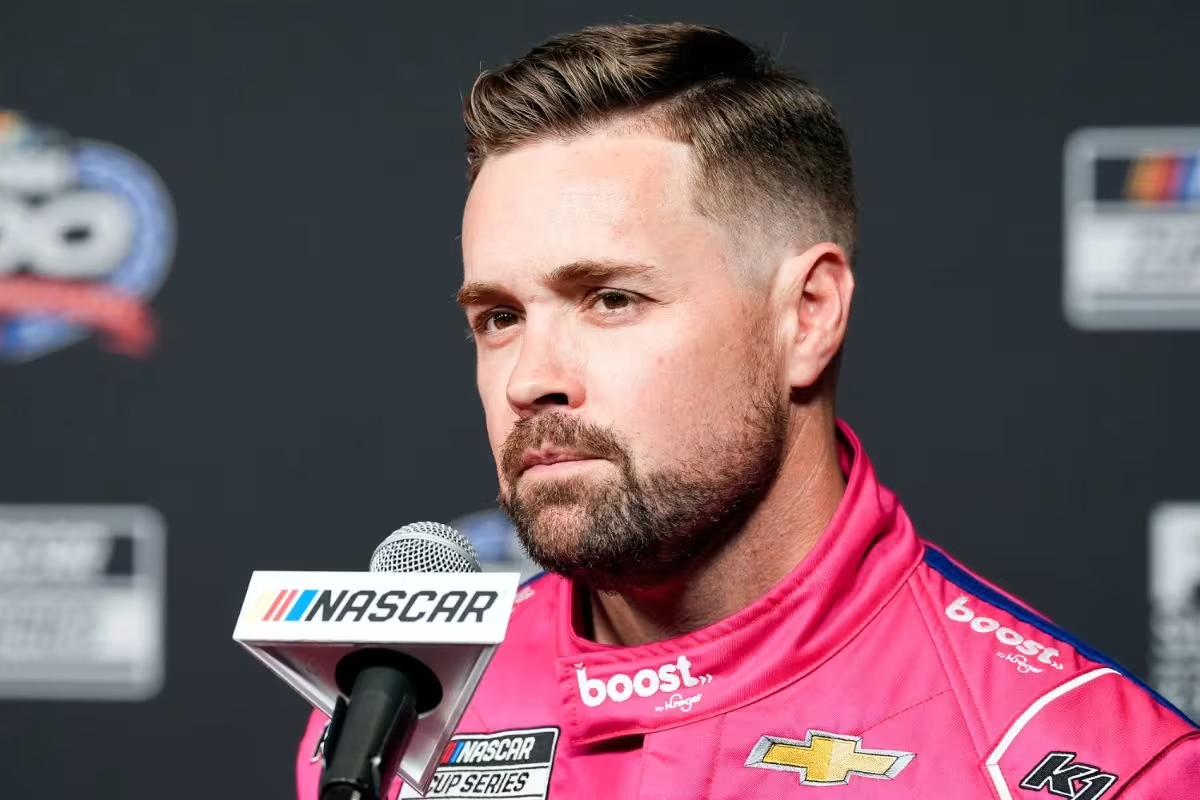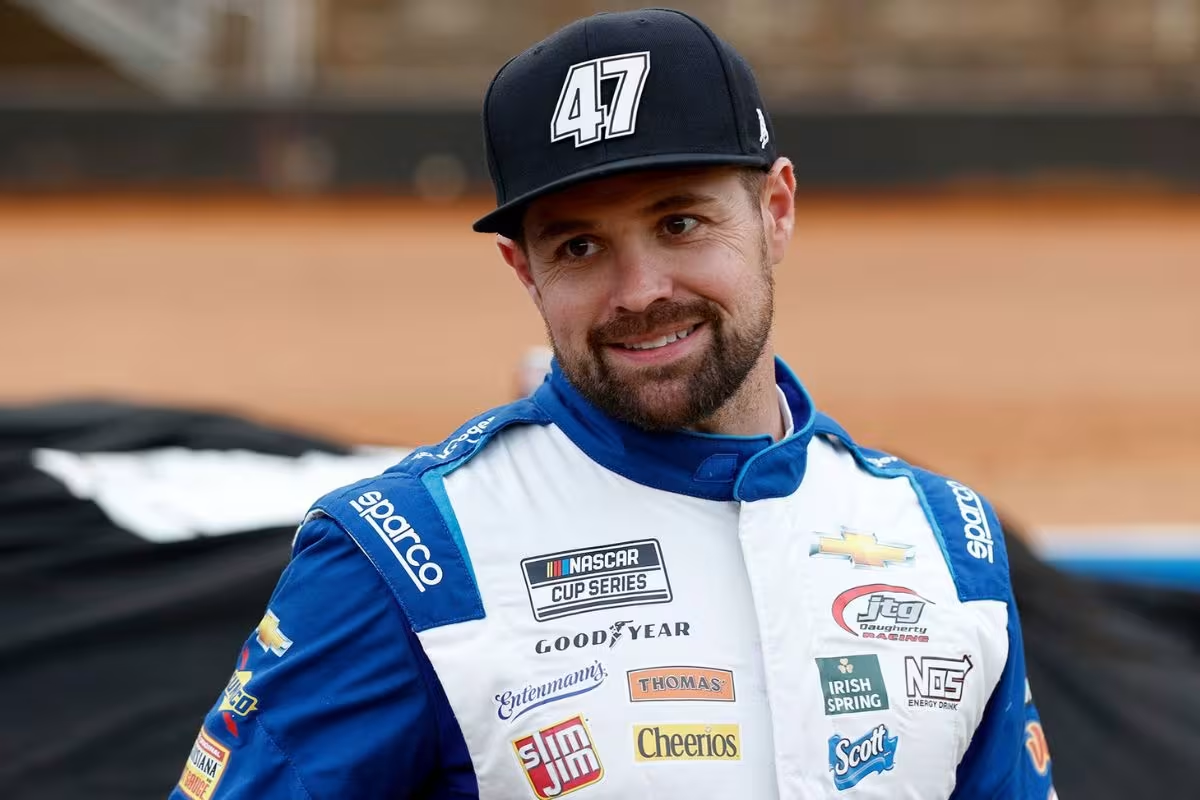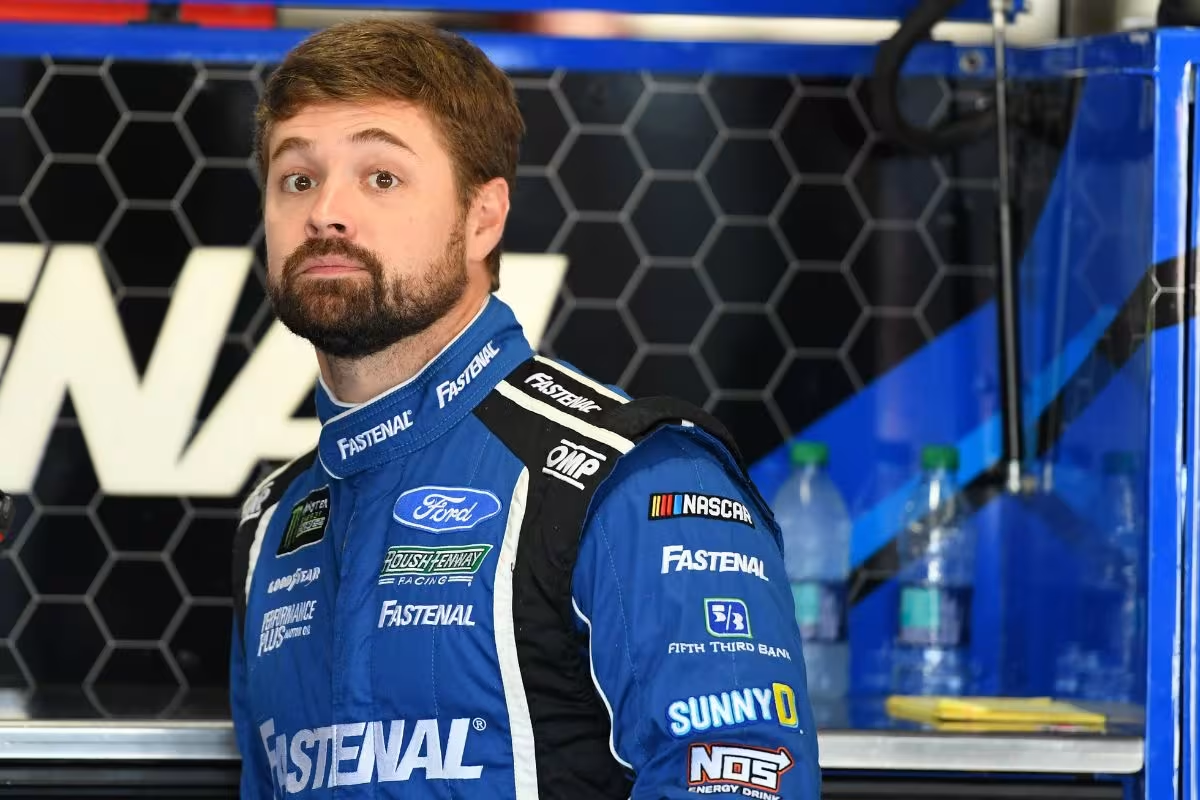Ricky Stenhouse Jr.’s Dad Back in NASCAR: The recent reinstatement of Ricky Stenhouse Jr‘s dad in NASCAR has lit a firestorm of controversy among fans, many of whom perceive this decision as symbolic of favoritism within the league. Following his suspension due to a physical altercation with Kyle Busch, critics argue that NASCAR’s inconsistent disciplinary actions not only compromise the integrity of the sport but also erode trust among its loyal followers. As discussions intensify around the implications of this decision, the broader questions of accountability and fairness in NASCAR governance demand examination.
Key Highlights
- Fans expressed outrage over Ricky Stenhouse Sr.’s reinstatement, viewing it as a sign of favoritism within NASCAR’s disciplinary actions.
- The immediate penalties imposed on Stenhouse Jr. and Sr. raised questions about NASCAR’s consistency in handling driver conduct.
- Many critics believe that the lenient treatment of Stenhouse Sr. undermines accountability and self-regulation in the sport.
- Fans are concerned that NASCAR’s response to the altercation reflects broader governance struggles and inconsistency in disciplinary measures.
- Reactions from the fanbase highlight a growing distrust in NASCAR’s ability to enforce fair and transparent rules across all drivers.
NASCAR’s Track Record with Off-Track Penalties
NASCAR’s handling of off-track penalties has often been a contentious issue, reflecting a broader struggle in the domain of sports governance. The organization has faced criticism for its inconsistent and sometimes reactionary approach to discipline, particularly regarding incidents that occur outside the racing context.
When altercations arise, NASCAR frequently imposes considerable penalties in the immediate aftermath, only to retract or modify these sanctions once the situation has been reassessed or the involved parties reach an agreement. This pattern raises questions about the efficacy and fairness of their disciplinary measures.
For instance, the altercation involving Ricky Stenhouse Sr. and Kyle Busch at North Wilkesboro Speedway exemplifies this troubling trend. Initially, NASCAR opted for a harsh penalty, seemingly aiming to assert authority and maintain order within the sport.
However, as discussions unfolded and perspectives shifted, the penalty was revoked, leaving fans and participants alike bewildered by the apparent arbitrariness of the decision-making process. This oscillation between severe penalties and their subsequent retraction contributes to a perception of favoritism and inconsistency within NASCAR’s governance.
Such discrepancies not only undermine the credibility of NASCAR’s regulatory framework but also erode trust among drivers and fans. In an era where accountability is paramount, NASCAR’s practices surrounding off-track penalties necessitate a thorough evaluation to guarantee that actions reflect a commitment to fairness and transparency.
The Incident: Kyle Busch and Ricky Stenhouse Jr. at North Wilkesboro
The recent altercation between Kyle Busch and Ricky Stenhouse Jr. at North Wilkesboro has restored discussions about on-track conduct and its repercussions in NASCAR. The incident unfolded during the All-Star race when Busch, in a bold display of aggression, intentionally wrecked Stenhouse on just the third lap. This maneuver not only disrupted the race but also shows the escalating tensions that can arise in a highly competitive environment.
Stenhouse, known for his fiery conduct, did not take the incident lightly. Following the race, he confronted Busch, leading to a physical altercation where Stenhouse punched the RCR driver in the face. This act of payback accentuated the emotion involved in racing, where reputations and pride are often on the line.
The confrontation escalated further as crew members from both teams intervened, demonstrating how quickly conflicts can spiral in the high-pressure atmosphere of NASCAR.
Moreover, the presence of Stenhouse Sr. in the fray added another layer to the narrative, as he attempted to engage Busch during the scuffle. This familial connection shows the stakes beyond mere racing; it involves loyalty and the protection of one’s family name.
In a sport where respect is paramount, this incident raises critical questions about the conduct of drivers and the influence of personal rivalries in shaping the competitive landscape. As the dust settles, NASCAR must grapple with how to address such conflicts and maintain the integrity of the sport.
NASCAR’s Initial Penalties on Stenhouse Jr. and Stenhouse Sr.
The altercation between Ricky Stenhouse Jr. and Kyle Busch, disciplinary measures were swiftly enacted to address the breach of conduct that marred the All-Star race. NASCAR’s response was swift and severe, illustrating the organization’s commitment to maintaining decorum within the sport.
The penalties imposed on both Stenhouse Jr. and his father, Stenhouse Sr., were notable. Ricky Stenhouse Jr. faced a substantial monetary penalty, while his father received an indefinite suspension from the racetrack. The lack of clarity regarding the duration of Stenhouse Sr.’s suspension raised eyebrows among fans and analysts alike, emphasizing the inconsistency in NASCAR’s disciplinary framework.
The unexpected reinstatement of Stenhouse Sr. has further fueled the outrage among fans, many of whom perceive favoritism in NASCAR’s decision-making process. As Bob Pockrass reported, this reinstatement allows Stenhouse Sr. back into the garage and pits during race weekends, a move met with notable resistance from the fanbase.
Ricky Stenhouse Jr.'s dad, who was suspended from NASCAR following the Kyle Busch fight at the all-star race in May, has been reinstated (which means he can be in the garage/pits during race weekends).
— Bob Pockrass (@bobpockrass) September 24, 2024
Fans’ Reactions to Stenhouse Sr.’s Reinstatement
Reactions from fans regarding the reinstatement of Stenhouse Sr. have been overwhelmingly negative, showing a growing dissatisfaction with NASCAR’s handling of disciplinary actions. Critics argue that the decision to reintegrate Stenhouse Sr. sends a troubling message about accountability within the sport. Given that the altercation involved a family member entering the fray, many believe it undermines the principle of self-regulation among drivers and raises ethical concerns about the boundaries between familial support and unsanctioned aggression.
One fan articulated this sentiment clearly, suggesting that NASCAR should consider rebranding itself as “THUGCAR,” reflecting an increasing perception that the sport is condoning violent behavior. Such reactions indicate a broader unease among the fanbase, which feels that the reinstatement may not only dilute the seriousness of NASCAR’s disciplinary measures but could also jeopardize the integrity of the sport itself. The notion that a family member could so freely intervene in a driver dispute is viewed as a dangerous precedent.
“Might as well rename it THUGCAR now smh won’t be watching anymore.”-(fanS’ reaction)
Moreover, while NASCAR has historically shied away from promoting violence, the irony of leveraging such incidents for promotional content has not escaped fans. The concern grows that this approach may ultimately harm the sport’s brand image, as one commentator noted that the diminishing viewership could be directly tied to these lenient disciplinary practices.
As the debate continues, it is clear that the fans’ discontent reflects deeper issues regarding NASCAR’s values and its commitment to upholding a competitive, yet respectful, environment.
Comparisons to Other NASCAR Incidents
NASCAR’s approach to disciplinary actions has frequently sparked debate, particularly when comparing recent incidents involving drivers and their subsequent reinstatements. The case of Ricky Stenhouse Sr. has reignited discussions about perceived favoritism within the organization, especially when juxtaposed with other notable incidents.
For instance, Cody Ware faced serious allegations of assault that led to his suspension from racing. Following the dismissal of charges, Ware was quickly reinstated, prompting questions regarding the consistency of NASCAR‘s disciplinary measures.
“Why does @NASCAR always do this ? They suspend someone and months down the road reinstate them even though they started it ? Same thing in the past with Cody Ware , Alvin Kamara etc.”-(FANS’ REACTION)
Fans have drawn parallels between Stenhouse’s situation and that of Kyle Busch, who infamously took out Ron Hornaday during the 2011 Truck Series race, leading to a suspension and hefty fine. Critics argue that if Busch’s actions warranted only a temporary ban, the response to Stenhouse’s conduct should likewise reflect a leniency that prioritizes rehabilitation over punitive measures.
This inconsistency raises concerns about NASCAR’s transparency and the rationale behind its disciplinary guidelines. Conversely, some supporters of Stenhouse’s reinstatement express hope for a more orderly presence within the sport, suggesting that his return could be beneficial if managed appropriately.
“This is exactly why viewership is decreasing. He needs to be banned for life.”-(FANS’ REACTION)
This mixed response emphasizes a broader issue within NASCAR: the challenge of maintaining a fair and equitable disciplinary framework while maneuvering the complex dynamics of public perception and driver behavior. As these comparisons highlight, NASCAR must grapple with the implications of its decisions, aiming for a balance that upholds both integrity and the spirit of competition in the sport.
News in Brief: Ricky Stenhouse Jr.’s Dad Back in NASCAR
ALSO READ: Ricky Stenhouse Sr’s Racing Legacy: Controversy and Success



